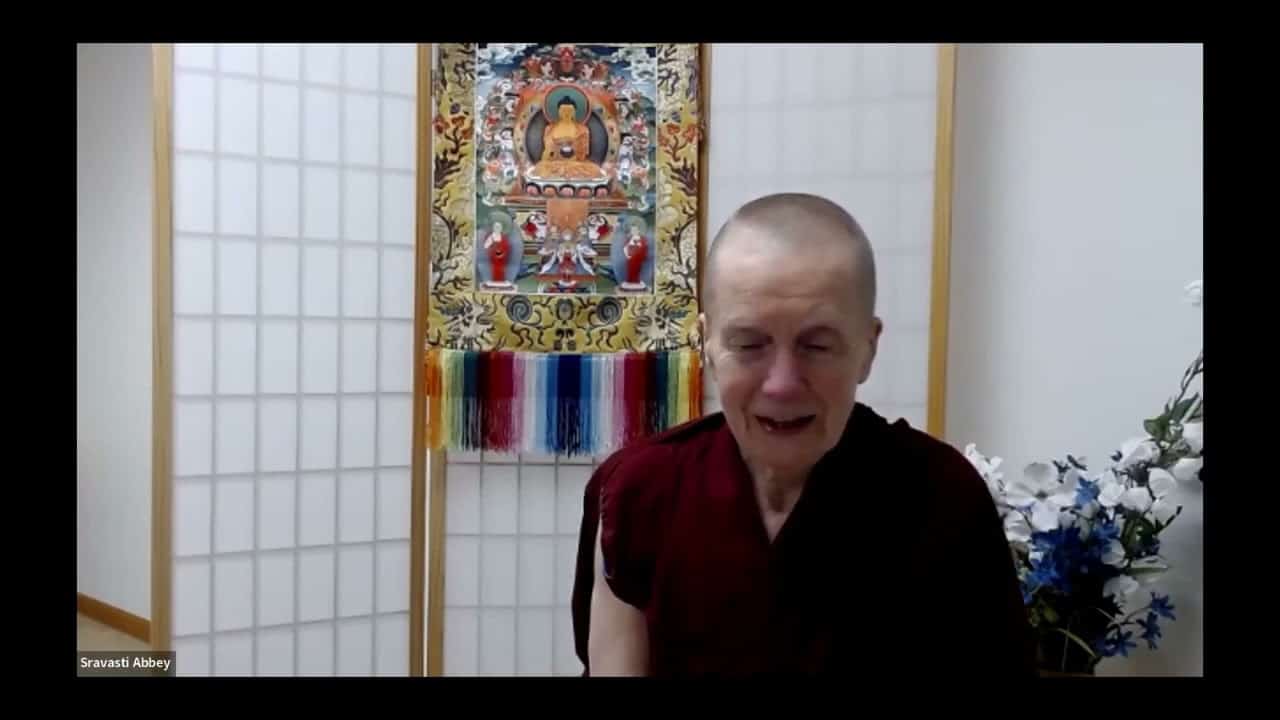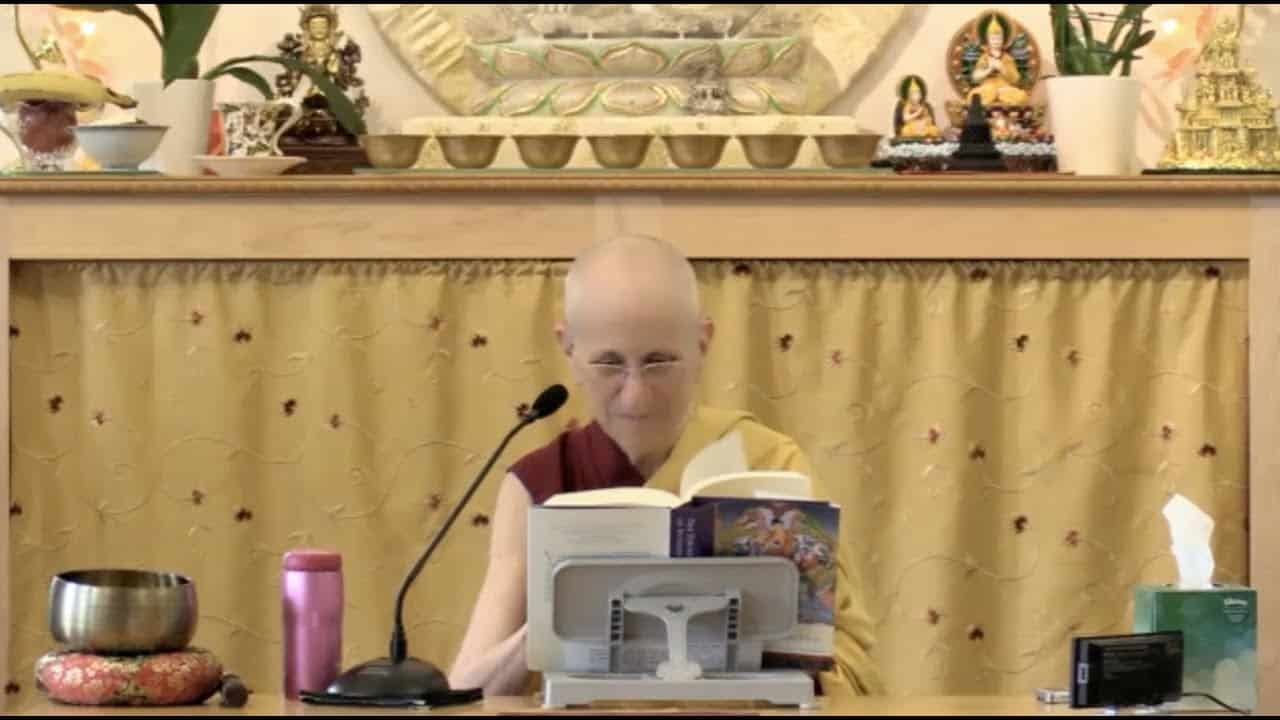Ultimate nature of the twelve links
65 Samsara, Nirvana, and Buddha Nature
Part of an ongoing series of teachings (retreat and Friday) based on the book Samsara, Nirvana, and Buddha Nature, the third volume in The Library of Wisdom and Compassion series by His Holiness the Dalai Lama and Venerable Thubten Chodron.
- Questions about the overturn of Roe v Wade
- Understanding dependent arising through cause and effect
- Example of a thermos
- Considering our lives as a conditioned phenomenon
- Example of a leaf on stream
- Three characteristics of dependent arising
- Not from a permanent creator, from multiple impermanent causes
- Cause having the capacity to give rise to the result
- Existent causes and selfless causes
- A thing arise neither from self nor others nor both nor without a causes
Samsara, Nirvana, and Buddha Nature 65: Ultimate Nature of the Twelve Links (download)
Contemplation points
- Venerable Chodron said in the introduction, “It’s quite an understandable freedom when we drop the things that we’re attached to, open our mind to the feelings and situations of other people, and have an attitude of kindness and compassion towards them.” Take some time to contemplate this. What is happening in your community, in the country, in the world around you? How can you employ the Dharma in that situation to work with your attachments, calm your mind, and show kindness and compassion towards others?
- Why is it that a realization of dependent origination frees us from doubt about the past, present, and future, from dwelling on past or future lives, and where we came from or what will happen to us in the future? How do you suffer from these worries now? What is the main source of your worry? Spend some time with this and get a feeling of what this might be like to be free of it.
- Consider the continuity of the self. How is it that there is not someone who carries karma from life to life and yet a self does exist. Who is practicing the path? Is it your eye consciousness? Your toe? What is it? Think of a person that you are fond of and then go through: What is that person? Who is that person that you love so much?
- Doing a similar analysis, spend some time thinking of a river (or visit a river and contemplate): put a leaf in the stream and watch it move. Is there something that carries that leaf? Can you pinpoint one drop of water that carries it? What exactly is being carried?
- Review the explanation and quotations that refute the existence of an inherently existent person, self, or soul that is reborn. Do you get a sense that there is not a permanent, fixed person that is you who goes from life to life? Despite your not existing in that way, you still exist and function. The absence of an inherently existent person and the conventional existence of a dependent person are complimentary.
- Describe the three defining characteristics of dependent arising and make examples of each.
Venerable Thubten Chodron
Venerable Chodron emphasizes the practical application of Buddha’s teachings in our daily lives and is especially skilled at explaining them in ways easily understood and practiced by Westerners. She is well known for her warm, humorous, and lucid teachings. She was ordained as a Buddhist nun in 1977 by Kyabje Ling Rinpoche in Dharamsala, India, and in 1986 she received bhikshuni (full) ordination in Taiwan. Read her full bio.


